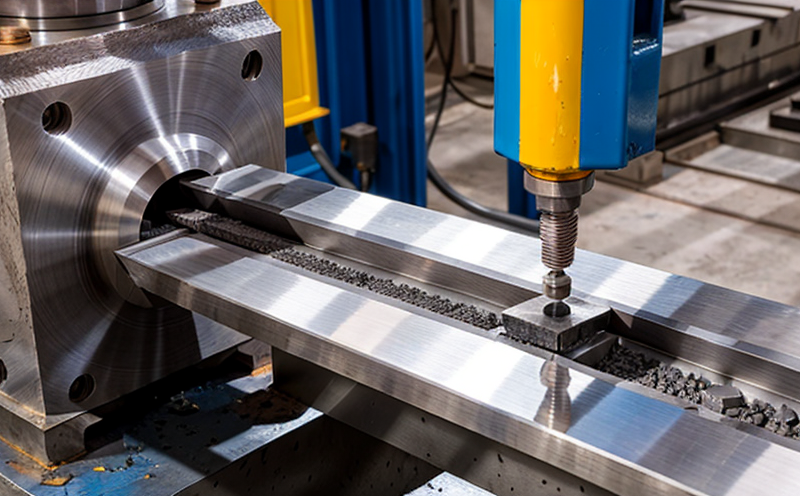Rockwell hardness testing for alloys
Unlocking Material Properties The Importance of Rockwell Hardness Testing for Alloys in Industry
In todays fast-paced and highly competitive manufacturing landscape, businesses are constantly seeking innovative ways to optimize their production processes and improve the quality of their products. One crucial aspect that can make all the difference is understanding the material properties of alloys used in various applications. Among the numerous testing methods available, Rockwell hardness testing for alloys stands out as a premier laboratory service that provides invaluable insights into an alloys mechanical behavior.
At Eurolab, we recognize the significance of accurate and reliable testing results in maintaining product quality, ensuring consistency, and meeting industry standards. Thats why we offer comprehensive Rockwell hardness testing services specifically designed for alloys, catering to the diverse needs of various industries, including aerospace, automotive, and construction.
What is Rockwell Hardness Testing?
Rockwell hardness testing is a non-destructive method used to determine the hardness of materials, typically metals and alloys. This widely accepted testing technique is based on the principle that the indentation produced by a minor load (major load) can reveal valuable information about an alloys inherent properties. By measuring the depth or diameter of the indentation created by a standard indentor under specific conditions, scientists and engineers can accurately assess the materials hardness.
Why is Rockwell Hardness Testing for Alloys Essential?
To remain competitive in todays market, businesses need to ensure their products meet rigorous standards while minimizing costs. This is where Rockwell hardness testing comes into play
Ensures Consistency Accurate hardness values help manufacturers maintain consistent product quality, which is crucial in industries where slight variations can impact performance or safety.
Predicts Material Behavior Understanding an alloys hardness allows for informed decisions about material selection, ensuring that products are suitable for their intended application and minimize the risk of failure.
Improves Durability Hardness testing helps manufacturers identify potential weaknesses in materials, enabling them to develop strategies to enhance durability and extend product lifespan.
Reduces Material Waste By identifying materials with optimal hardness levels, companies can reduce waste generated by rejects or rework, resulting in significant cost savings.
Benefits of Rockwell Hardness Testing for Alloys
Some of the key advantages of using Rockwell hardness testing for alloys include
High Accuracy This non-destructive method provides reliable results that accurately reflect an alloys hardness properties.
Rapid Testing Time The Rockwell hardness test is relatively quick compared to other methods, enabling fast turnaround times and minimizing delays in production schedules.
Wide Applicability Rockwell hardness testing can be applied to a broad range of alloys, including those with varying chemical compositions or microstructures.
Flexibility This method allows for testing at different scales, from small samples to large quantities, making it an ideal choice for various industrial applications.
How Does Rockwell Hardness Testing Work?
The Rockwell hardness test is based on a simple yet effective principle
A minor load (major load) is applied to the surface of the alloy sample.
The indentor penetrates the material, creating an indentation that reflects the inherent properties of the alloy.
The depth or diameter of the indentation is measured using advanced instrumentation.
Common Applications of Rockwell Hardness Testing for Alloys
From aerospace to automotive and construction industries, Rockwell hardness testing plays a vital role in ensuring product performance, reliability, and durability
Aerospace Critical components, such as engine parts, require precise control over material properties.
Automotive Engine blocks, gearboxes, and other moving parts demand high hardness values for optimal performance and lifespan.
Construction Structural components, like steel beams or building frames, must exhibit sufficient hardness to withstand environmental stresses.
Frequently Asked Questions (FAQs) about Rockwell Hardness Testing
Weve compiled some of the most common questions related to Rockwell hardness testing for alloys
Q What is the minimum sample size required for Rockwell hardness testing?
A Typically, samples must be at least 10 mm in diameter and 15 mm in length.
Q Can any type of material be tested using Rockwell hardness testing?
A While this method is widely applicable, some materials may require special treatment or considerations, such as alloys with unique chemical compositions or microstructures.
Q How does Rockwell hardness testing compare to other hardness testing methods?
A This non-destructive technique provides accurate and reliable results that are comparable to other widely accepted hardness testing methods, such as Brinell or Vickers tests.
Conclusion
In the realm of material science, understanding an alloys properties is crucial for ensuring product quality, consistency, and reliability. At Eurolab, we offer comprehensive Rockwell hardness testing services tailored specifically to alloys, providing businesses with valuable insights that drive informed decision-making and drive success in their respective industries.
By partnering with us, manufacturers can
Enhance product performance
Reduce material waste
Improve durability
Ensure compliance with industry standards
Choose Eurolab for your Rockwell hardness testing needs and experience the difference of accurate and reliable results that propel business forward.




